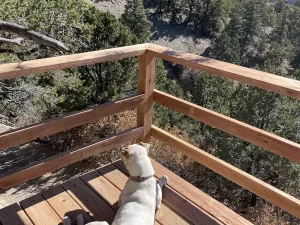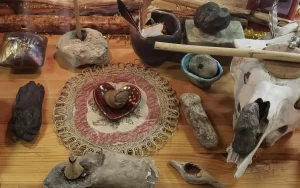A specter is haunting society, and that specter is psychedelic therapy. More precisely, it is the unconscious attitudes around psychedelics, which include a messianic projection of healing, salvation, success and profit onto psychedelic molecules, or Plant Spirit Medicines. There is a shadow side to psychedelic therapy that we need to address. In this time of social strife and environmental catastrophe, when it is easy to feel disempowered and hopeless, a messianic projection, looking for something new, outside of ourselves, that offers transformation and healing is very understandable. Whereas both the problems in the world and in our psyche require commitment to long-term changes, that are difficult, and when we are frustrated with the status quo, there is a strong unconscious yearning for a quick fix, which has been projected onto and haunts society’s views of psychedelic therapy. This has led to an ever growing and more powerful shadow side.
Our thoughts on this theme are not meant to disrespect the important voices that are emphasizing the need for humility, connectedness, integration and honoring of indigenous wisdom. Our urge to share these thoughts is because we are really concerned that if we don’t continue to examine these unconscious shadow patterns in the discourses around this, then the Shadow will continue to rule us and unconsciously influence our behaviors and potentially push the discourses in directions that are against healing and against life.
We personally pulled away from the aromatherapy world because it became a fad. Aromatic plants in the form of essential oils were exploited in any and every way possible with little concern about their true intelligence, their ability to help us navigate the unconscious realms and their sustainability. This pattern or discourse seemed to be powerfully shaped by unconscious forces. We are very worried that the same thing is happening to psychedelic plants.
Please don’t get us wrong. We honor and respect the power of both these plant medicines. What we are worried about is that they are being used to replace the real work of what it means to grow into a mature human and a mature society. These medicines and teachers can do to the psyche what many medicines are supposed to do to the physical body, which is to support when there is a dysfunction, imbalance, stagnation, foreign entity, etc. This means when someone is stuck, addicted, emotionally and/or mentally unable to clear blockages–such as trauma including ancestral trauma, anxious and depressed, some psychedelic plant medicines in the right set and setting may help the person to move forward, to open a door. They do this by showing the person taking the medicine aspects of their unconscious self they are unaware of. They bypass the filter, the analytical ego, left brain thinking and reveal the Shadow – the parts of the Self that are hidden, and which rule us because they are hidden.
Plant spirit medicine acts as a reminder to the soul that there is more to the Self than we think, which is the ego. The danger that we are seeing in this frenzy of psychedelic therapy is that people are using the medicine every time they want to explore their unconscious rather than genuinely receiving the message and then learning how to build relationship and navigate their unconscious in their daily lives, which is the aim of what Carl Jung called Individuation.
As one of our clients said about his ketamine sessions: “When you get the message, don’t forget to put down the phone.”
It is not only clients who need to get the message and do the work of befriending the unconscious, practitioners have to as well. A therapist (using this term loosely, to include anyone who wants to work with clients in mental health or psychedelic healing, including psychiatrists, psychologists, psychotherapists, as well as underground ‘guides’ or ceremony leaders who work with psychedelics) can only be with a client as far as they have explored their own unconscious. The worst thing is when a therapist feels anxiety and doesn’t become aware of themselves, because they are not comfortable or familiar with the unconscious realms that Plant Spirit Teachers make manifest, within themselves and the client. The client usually picks up on the anxiety unconsciously and this can worsen their experience. Not only are they being exposed to unconscious aspects of themselves, a challenge in the most supportive settings, but now they’re also being asked to carry the therapist’s or sitter’s anxiety and other unconscious feelings. This to me is profoundly unethical and damaging. The lack of awareness of the therapist/sitter/guide implicitly send the message ‘I’m unaware of this and I don’t want to deal with this, so I’m going to make you carry it, and you probably don’t even know what’s happening.’ This is a very disempowering, externalizing and pathologizing message. The therapist is basically projecting the shadow of their own wounded healer onto the client and keeping the client trapped in a disempowered state.
Psychedelics can be a helpful medicine within a long term project of a committed, inner healing journey. But they are NOT the journey. The journey is a deep, long term commitment to working with one’s own unconscious forces and often demands a dark night of the soul. There is no way psychedelics can replace the work of a lifetime and it is irresponsible to suggest otherwise.
There is also a shadow side to the language we use, which, whether we know it or not, is shaped by and perpetuates power structures. This pattern, which privileges some discourses over others, has contributed to keeping certain hard-earned wisdoms in the shadow. There is a shadow side to the widespread neglect of the importance of integration. This is part of a wider cut-off-ness from our unconscious, our souls and living nature that we are a part of. There is a shadow side to the cut-off-ness and ego arrogance with which we approach these molecules/healing modalities/teachers.
Even the term psychedelics or psychedelic molecules is inherently shaped by ideology and impacts the set and setting profoundly. Set and setting doesn’t just refer to the attitudes of the client and the therapist and the décor of the therapeutic space, but it also deeply shaped by the discourse that they subscribe to and how they view these teachers, as well as by the discourses in society at large, which include the history of law enforcement and prohibition, as well as the world views of the academic research centers, the profit motives of companies seeking to market these molecules and the changing views in society.
Deep in the shadow of the psychedelic resurgence is colonization. The indigenous cultures and their people, including many women from many ancient cultures, including European cultures or so-called witches used the hallucinogenic plants native to their lands. These doorkeepers to the plants that grew around them and that they knew so well have throughout modern history been pushed aside in the name of ‘science’ and profit. Are we doing the same thing today?
There is something very Faustian about psychiatrists, psychologists and therapists turning to psychedelics, having been frustrated with conventional psychiatric medications and forms of therapy, the same way Faust was frustrated with having studied “Philosophy/And Jurisprudence, Medicine,/And even, alas! Theology,—/From end to end, with labor keen;/And here, poor fool! with all my lore/I stand, no wiser than before.”
The story of Faust is a necessary warning of this hubris that we are being tempted by. When we forget the unconscious forces, they will ask for their due, the way the devil asks for his due from Faust. The devil has long been a stand-in for the unconscious forces, or what Jung refered to as heimarmene, a personification of unconscious forces. Faust literally gets a potion from a witch to make himself appear younger and later visits a witches’ sabbath, without any understanding, without any respect for the sacred traditions of psychedelics and working with the unconscious of which indigenous women are the wisdom keepers for his own very egoic purposes. There are a lot of analogies to the modern commercial and academic exploitation of these sacred plant molecules, ignoring and exploiting feminine indigenous wisdom and disregarding the wisdom and respect required. The sad story of the negative impact of R. Gordon Wasson’s LIFE magazine article on the life of Maria Sabina and her family should serve as a warning, not just of the exploitation of indigenous women, wisdom keepers and sacred plants, but of the power of the unconscious. We are all Dr. Faust.
The main message is that we both individually and collectively need to realize what we are missing is our relationship with the unconscious, with the part of ourselves and of life that cannot be measured. The part that does not fit into double blind studies, that can’t be monetized and yet when ignored or denied has the most powerful force over us. Once we befriend and learn to navigate the unconscious, the plants we need at the moments we need them will invite us to connect. Let the plants lead the way!!
share this blog:
Recent Posts
Archives
- December 2023
- November 2023
- September 2022
- July 2022
- September 2021
- August 2021
- July 2021
- June 2021
- April 2021
- March 2021
- February 2021
- January 2021
- November 2020
- October 2020
- August 2020
- July 2020
- June 2020
- May 2020
- April 2020
- March 2020
- February 2020
- October 2019
- September 2019
- July 2019
- May 2019
- March 2019
- September 2018





